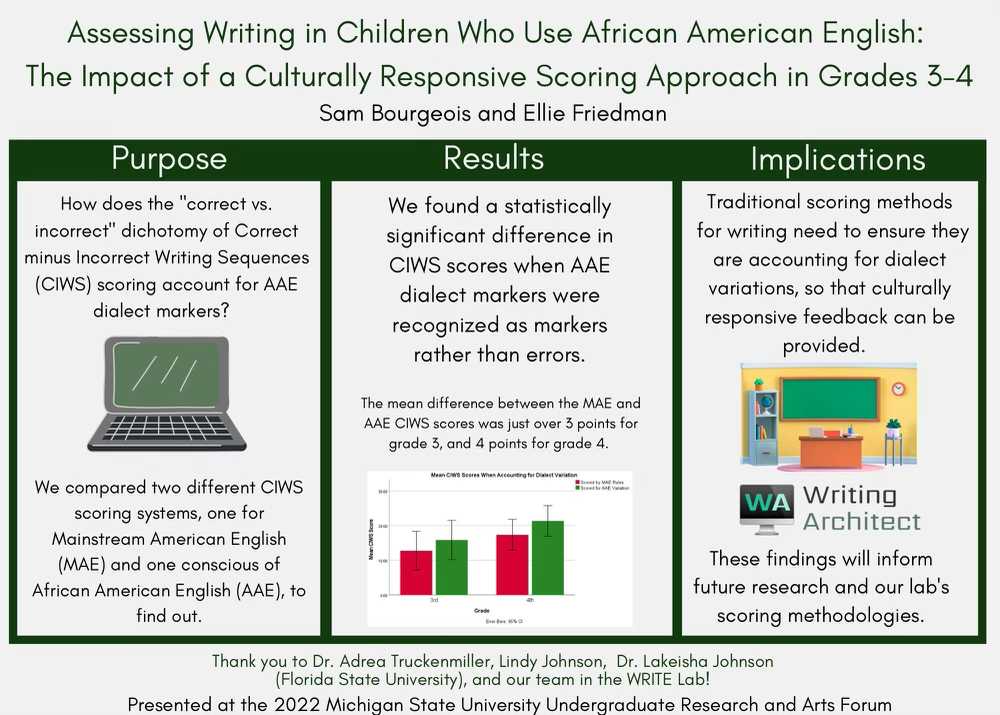Student Spotlight: Ellie Friedman
July 11, 2022 - Jesús Hernandez and Beth Brauer
Name: Ellie Friedman (she/her/hers)
Hometown: West Bloomfield, MI
Majors: Social Relations & Policy, Secondary Education (Social Studies w/ a minor in English)

Why did you choose James Madison College?
Because I am studying to be a high school teacher, I knew that I wanted my undergraduate education to be anchored in interdisciplinarity and informed by the social sciences. JMC has offered me the opportunity to fully experience MSU’s Honors College and College of Education while providing me with a tight knit community, intellectual challenges and lots of opportunities to read and write. Living in Case Hall was also a contributing factor and is a huge perk!
What have you liked best about your residential college experience so far?
Living in Case Hall has been the highlight of my residential college experience so far! Especially after a freshman year of literal and figurative distance from the “living” part of the living-learning community, being in a hallway with my friends and classmates was vital to my experience. The seemingly trivial moments are the best! As avid consumers of dining hall soft serve, friends from my floor and I would pour ourselves obscene amounts of soft serve with mountains of toppings and gather to edit each other’s papers before a movie night. Even the most difficult of academic tasks become bearable when surrounded by unlimited ice cream and supportive best friends.
Another favorite memory is my freshman year MC 202 course with Professor Stephen Rohs. The freedom to research any topic related to American cultural nationalism allowed me to spend the semester exploring a season of my favorite reality TV show: “Survivor.” Even the most unconventional interests can be dissected in JMC courses.
How has the JMC curriculum aided in your understanding of social issues?
JMC’s content has given me the tools to not only analyze social issues through a variety of lenses (sociological, historical, etc.) but also to articulate my learning in a concise and analytical way.
More broadly, I find that my JMC courses leave me with more guiding questions than definitive answers. I know that this (sometimes frustratingly) endless inquiry perfectly captures the essence of this intellectual community, and my peers and professors encourage me to keep seeking knowledge.
The SRP curriculum incorporates a variety of mediums that reflect a wide array of social science methodologies. I particularly find meaning in memoirs and novels that showcase storytelling’s unique role in social justice movements.
Your research project, “Assessing Writing in Children Who Use African American English: The Impact of a Culturally Responsive Scoring Approach in Grades 3-4,” received the 2022 grand prize for the Undergraduate Research and Arts Forum (UURAF) in the Social Science, Humanities and Arts division. How did you choose this area of research and what did your studies reveal?
I started research under the mentorship of Dr. Adrea Truckenmiller at the beginning of my freshman year and was matched with her lab through the Honors College’s Professorial Assistant program. During my freshman year, I learned the ropes of quantitative education research and, this past year, with the other undergraduate in my lab and our awesome Ph.D. mentor, Lindy Johnson, I’ve helped apply social justice lenses to our goal of providing writing instruction to educators.
Our findings, developed in conjunction with other researchers, posit that traditional writing scoring methods are biased towards mainstream American English, and literacy research must work to account for different English dialects such as African American English.

In what ways do you anticipate this project will help with your future academic and professional goals?
I have the immense privilege of participating in both quantitative and qualitative education research, so I am beginning to feel very prepared for and enthusiastic about pursuing graduate school, hopefully in critical education studies.
Similar to JMC classes, this type of research excites me because it leaves me with more questions than answers, so every project provides me with an endless to-do list. This UURAF project is still in a relatively early stage, and it is clear that there is much work to be done in terms of linguistic justice in writing scoring. I’m looking forward to being a part of it!
What’s the best part about being a Spartan?
I love feeling that I am a part of something much broader in size and scope, so old Spartan traditions are my favorite! Last year, I served as president of MSU Tower Guard and held the key to Beaumont Tower. Being intimately connected to such a historic part of MSU made me feel so proud of our rich history and more committed to improving our institution. In the same vein, there is nothing like the collective shouts in the student section at a football game. GO GREEN!

